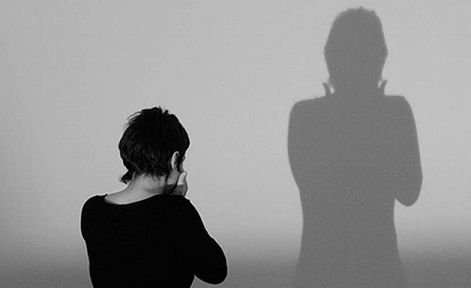Lana Giorgidze
Violence victim women often refuse to give testimonies to the prosecutor’s office or change their initial testimonies in favor of the harassers. Representatives of NGOs and Chief Prosecutor’s Office name different arguments for that.
Lawyer of nongovernmental organization Safari Eliso Rukhadze told humanrights.ge that mostly prosecutors do not meet the victims: “Investigator and prosecutor investigate the case together but mostly the investigator does the main job. Prosecutors trust investigators and most of them have no idea about the victim, whether she is lying or not, or is provoking the harasser. Prosecutor rarely meets the victim personally. It is the reason why victims refuse to give testimonies.”
Eliso Rukhadze added that there are many reasons why victims change their testimonies or/and refuse to give testimonies. One of the reasons is zero tolerance from the side of investigators, particularly if investigator is a man. “At the same time, victims have feeling that harasser will become crueler. The state cannot offer alternative measure instead prison except plea agreement, which is used in rare cases. Considering that, victims avoid irritating harassers. Nobody guarantees the victims that the state will protect them. Considering these factors, the victim prefers to keep silence and put up with the situation.”
Human Rights Center’s Kvemo Kartli office coordinator Tamar Lukava said the organization has worked on two cases, where, although the prosecutor’s office had carried out all necessary procedures, the violence victims refused to give testimonies. “The violence victim woman gave testimony against her husband but then changed it and said that she had received the injuries, which she had on the leg too, accidentally and that the husband had accidentally stepped on her feet.”
Tamar Lukava added that the victim noted in her altered testimony that during the interrogation in the prosecutor’s office she became subject of psychological oppression and was forced to make testimony against her husband that was not true. “The prosecutor’s office had carried out all necessary procedures in that particular case but as we found out the family influenced the victim and she finally changed the testimony.”
HRC lawyer clarified that victims mostly change their testimonies as a result of oppression from their family members. “Although the prosecutor’s office have enough evidence, the victims change their testimonies. However, in one case, when the victim changed her testimony, the court passed guilty verdict. The court does not rely only on the testimony of the victim but also on the expertise conclusion and testimonies of other witnesses. We have not worked on any case, where prosecutor was not engaged in the process.”
The allegation that prosecutors refrain from procedural operations and do not personally meet the victims is not acceptable for Natia Merebashvili, interim head of the department supervising the professional activities of prosecutors at the Chief Prosecutor’s Office.
“We do not agree with the allegation that prosecutors refrain from engagement in procedural activities; just the opposite, majority of prosecutors meet victims before investigators meet them, considering the sensitiveness of the cases. Furthermore, when prosecutor is aware that the victim is going to change the testimony, he/she meets, warns her about possible outcome. However, prosecutor cannot oblige the victim to make testimonies against family members. The statement that prosecutors do not meet victims are far from reality,” Natia Merebashvili said.
She added that in the process of investigation, mostly, all victims agree to make testimonies but afterwards, eventually, until preventive measures are imposed on the harasser, the victims change testimonies or refuse to make them. Moreover, they are not obliged to give testimonies against family members. “We still try to collect evidence to execute justice regardless the changed testimonies. In about 50-80% of cases the victims change positions.”
Natia Merebashvili said the main reason of refusal to give testimony is that victim women do not want to lose the bread-winners of their families because they largely depend on the harasser or other family members – mother-in-law or father-in-law. Moreover, they have children and cannot grow them up alone.”
She said another reason is stereotypes in the society. “How can you request arrest of your husband?!” And also there is fear – “what will happen when he leaves prison!” There are many reasons: mentality, economic situation of the family and more. Violence facts mostly happen with the women aged between 25 and 35 when they have underage children.
“The violence victims should rather live in non-violent environment. Their and their children’s safety is more important than economic welfare. First of all they should think of adequate environment for their children and their safety. The crimes will be repeated that is proved by statistics. So, it is important to implement the measures envisaged under the criminal code,” Natia Merebashvili said.
She added that harassers shall take rehabilitation course to change their behavior that will really prevent violence.
Representatives of the nongovernmental organizations and prosecutor’s office agree that prevention of the violence needs complex approach that includes psychological assistance for the harasser, change of his behavior and his rehabilitation.
The article was prepared in the frame of the project – “Trial Monitoring for Women”, which is implemented by Human Rights Center with the Bulgarian Development Aid. The views in the article does not necessarily express the views of the donor and it is responsible for the content of the article.
News
December 13, 2023
Ethnic minorities outside the peace dialogue
November 6, 2023
‘Peace’ agenda of political parties
Popular
Articles
February 13, 2024




